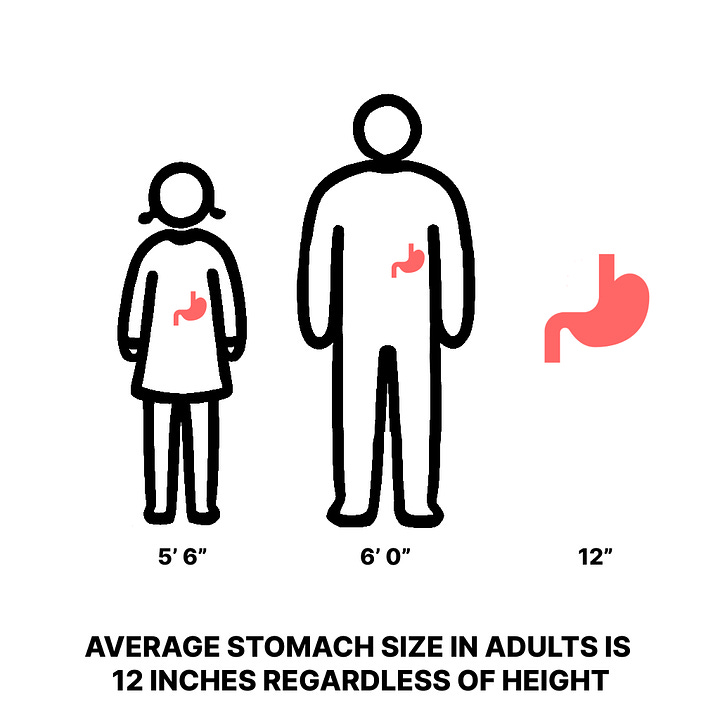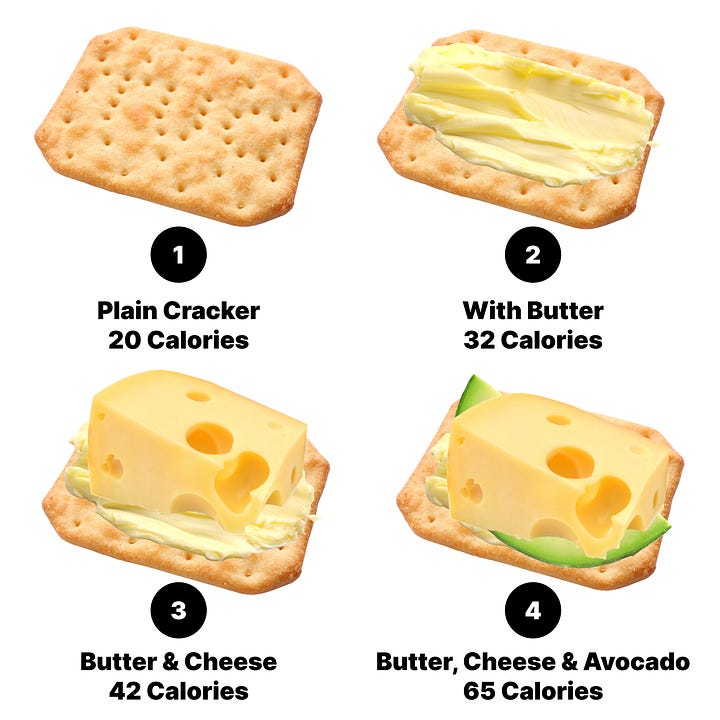Wellness Exposed: The GLP-1 Shift
I cannot believe the wimpy, wokey wellness brainwashing! I’m on a flight, and the woman next to me starts droning on about “wellness.” Of course, she’s slim—but not because she’s an exercise addict or a full-blown nutrient micromanager. Meanwhile, the rest of the plane (except for me and about five other people) is decidedly not slim.
There’s a dad with his two daughters—maybe eight and eleven—and both have shockingly well-developed chests. Why? Because they’re obese. And yet, I bet he’s still chanting the same tired mantra: “Calories in, calories out!” Like, buddy, do we really still believe that nonsense when the entire planet now knows the name Ozempic? GLP-1 drugs aren’t like those old, desperate diet pills that tried—and failed—to rev up your metabolism so you could binge guilt-free. This isn’t Alli, the over-the-counter fat blocker that made people have disgusting “treatment effects” (which is how Alli’s drug company describes gut leakage). Nope—GLP-1 drugs actually kill hunger, and yet people still cling to the failed wellness formula.
I learn the most about weight loss from GLP-1 Facebook groups. These people don’t sugarcoat anything (ironically), and they’re thrilled to have a real solution. They post before-and-after photos like their lives depend on it—which, let’s be real, they kind of do. Normally, I’d roll my eyes at transformation pics because, if they actually worked, everyone in America would be slim by now.
The biggest thing I hear? People barely eat anymore. Some because they’re nauseous (which, honestly, could’ve been its own diet drug—just make people queasy and call it a day). Not everyone gets that side effect, though. I read about one influencer who’s on her fourth pregnancy and has been nauseous all four times—after the first two rounds, maybe take a hint? Meanwhile, I had two kids and never even gagged. It’s all individual, just like the GLP-1 weight-loss experience.
But let’s get back to these “miracle drugs” because the reality is, it’s not about calories—it’s about hormones. Messed-up hormones make you insatiably hungry, stretch your stomach, and keep you eating for the wrong reasons. And yet, people cannot let go of “calories in, calories out.”
Sure, if you inhale 10,000 calories in a single sitting, your body’s going to notice. But it’s the big picture that matters.
Ever heard of Hara Hachi Bun Me? It’s the Japanese practice of eating until you’re 80% full. Sounds great, right? Except in America, we have no clue what that means. We don’t know how much we eat. Download PhysicalMind’s free app—80Bites—that literally helps with this, but then reality intrudes. Swallowing 60 bites when a human should be full at 25 is clearly new to wellness freaks.
And let’s talk about pizza. If you eat two slices without a beverage, a side, or even veggie toppings, you’re not having a meal. You’re just stuffing your face. A meal should have some structure, for good reason. But no, people just shovel in food and wonder why they’re never satisfied.
Oh, and remember when people used to be underweight? The CDC says only 1.6% of the population is now. And yet, we’re all hand-wringing about “food insecurity.” Let’s be honest—most of that 1.6% isn’t skipping meals because they can’t afford them. They’re models, actors, and dancers who need to be light enough to get tossed in the air.


If you really want to gain weight, don’t just gorge on salads and protein. You’ll stretch your stomach, wreck your hormones, and eventually balloon up anyway. Instead, take the same number of bites but layer up—butter on a cracker, cheese, avocado. That’s how you gain strategically.
I eat this way, too—I’ll take the cheese and butter, but I’ll have fewer bites to balance it out. Meanwhile, people still think “healthy” means tasteless food: no sugar, no dairy, no fat. So they end up eating bland sadness, fewer than 20 calories per bite, and still wondering why they’re never full.
Even the so-called “healthy” takeout spots are confused. There’s one near me—DIGG—that has a “protein” (which we used to call the main) and two sides. Seems balanced, right? But then the health nuts say the protein should be a side… huh? It’s all so unnecessarily complicated.
I even took tracking off the 80Bites app because people are obsessed with logging everything. You eat three or four times a day—you should be able to remember if you went overboard without an app screaming at you. But people want to track, track, track. It’s exhausting. People have spent so much time, money, and energy on things that failed them, and when they hear the truth, they get mad instead of relieved. It’s bonkers.
Anyway, I’ll keep telling it like it is. Everyone should download the 80Bites app, read The Anti-Wellness Diet (it’s on Amazon for basically nothing and takes an hour—you’ll laugh, I promise). One person lost five pounds just from reading it! And no, she didn’t have much to lose, but you will if you finally ditch the calorie-counting nonsense.
Oh, and about Ozempic? Of course people are losing muscle—they’re not weightlifting every second of the day! But guess what? The trade-off is worth it.


Great insights as usual.
This post reminded me of this Ashleigh Brilliant Quote: “Somehow I reached excess without ever noticing when I was passing through satisfaction.”
One can learn a lot about GLP-1 agonists if one Googles 'GLP-1 agonist Endocannabinoid System'.
This is a good summary regarding endocannabinoid system function. "The Endocannabinoid System (ECS) is primarily responsible for maintaining homeostasis, a balance in internal environment (temperature, mood, and immune system) and energy input and output in living, biological systems. In addition to regulating physiological processes, the ECS directly influences anxiety, feeding behaviour/appetite, emotional behaviour, depression, nervous functions, neurogenesis, neuroprotection, reward, cognition, learning, memory, pain sensation, fertility, pregnancy, and pre-and post-natal development. The ECS is also involved in several pathophysiological diseases such as cancer, cardiovascular diseases, and neurodegenerative diseases. In recent years, genetic and pharmacological manipulation of the ECS has gained significant interest in medicine, research, and drug discovery and development. The distribution of the components of the ECS system throughout the body, and the physiological/pathophysiological role of the ECS-signalling pathways in many diseases, all offer promising opportunities for the development of novel cannabinergic, cannabimimetic, and cannabinoid-based therapeutic drugs that genetically or pharmacologically modulate the ECS via inhibition of metabolic pathways and/or agonism or antagonism of the receptors of the ECS. This modulation results in the differential expression/activity of the components of the ECS that may be beneficial in the treatment of a number of diseases." https://www.mdpi.com/1422-0067/22/17/9472
Rather than just modulate different aspects of endocannabinoid system function with pharmaceuticals, to me it makes sense to rebalance the system by reducing arachidonic acid intake. Excerpt: "Excessive signaling of arachidonic acid (AA) metabolites has been associated with various chronic degenerative or autoimmune diseases, and intervention with the metabolism of AA is widely employed therapeutically in these afflictions. In essence, AA is the most biologically active unsaturated fatty acid in higher animals. Its concentration in membranes and its magnitude of effects depend on its amount, or that of its precursors and analogues, in the diet. The tendency of the field of nutrition to ignore the role of dietary AA will optimistically be reversed in the future." https://pubmed.ncbi.nlm.nih.gov/8642436/
It is not widely known that one reason why the Mediterranean style diet produces favorable results is because it doesn't contain a lot of arachidonic acid. According to Steve Blechman, "The Mediterranean diet is low in arachidonic acid and rich in healthy fats such as monounsaturated fats found in extra-virgin olive oil (EVOO), nuts and omega-3 fatty acids from fish, which has been shown to lower the risk of inflammation, heart disease, cancer, diabetes and obesity, and other degenerative diseases." https://advancedmolecularlabs.com/blogs/news/new-red-meat-study-controversy